Libyan Economy: Making Slow but Steady Strides under New Government
Libya Top Stories
Libyan economy making slow but steady strides under new government amid political and security threats
Particularly after years of dictatorial control that wasted billions in energy wealth and where the new government and evolving private sector are trying to invest into reconstruction, services, infrastructure and community development while facing heavy challenges to ensure a safe business environment and transition toward an untested political culture of democracy.
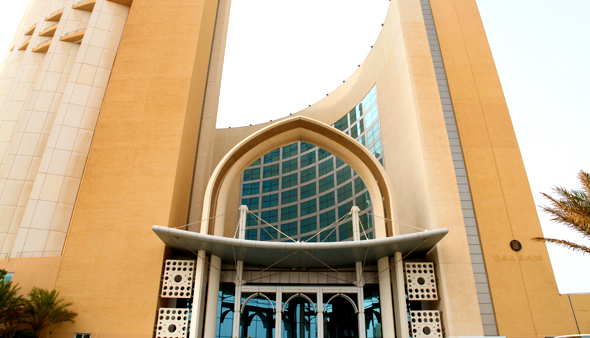
Libyan economy making slow but steady strides under new government amid political and security threats
By T.K. Maloy
TRIPOLI — What is the new economic normal in Libya?
Libyan Economic Background
Particularly after years of dictatorial control that wasted billions in energy wealth and where the new government and evolving private sector are trying to invest into reconstruction , services, infrastructure and community development while facing heavy challenges to ensure a safe business environment and transition toward an untested political culture of democracy.
Under Muamar Qaddafi the previous regime private-sector professional activities were prohibited consistent with “the Brother Leaders” inimitable vision of an egalitarian society.
The new normal is definitely not what was considered business as usual for the economy during the previous regime.
Under Muamar Qaddafi the previous regime private-sector professional activities were prohibited consistent with “the Brother Leaders” inimitable vision of an egalitarian society. Highly trained professionals such as doctors and lawyers were obliged to work for the state. And, the majority of workers also found the public sector the only source of income. The funding of this was made possible by Libya’s oil wealth, and in a sense bought the loyalty of the people.
The late Muamar Qaddafi also used money gained from oil exports to fund an arms buildup and also fight a costly and mercurial war with neighboring Chad. 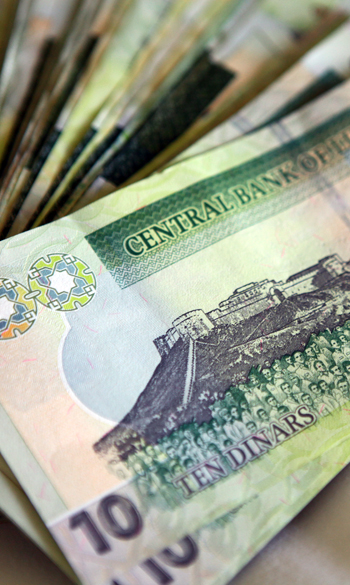
In his book, A History of Modern Libya, Vandewalle writes “Running on and off for nearly a decade, it was only after Chadian forces moved into Libyan territory in September 1987 that Qaddafi admitted defeat, but still maintained his claim on the Aozou Strip buffer zone. In 1994, the International Court of Justice ruled in Chad’s favor, meaning that the entire disastrous military adventure had brought Qaddafi nothing. That the whole incursion by Libya into Chad had been a senselessness exercise was a fact not lost on the Libyan people, including the army which was reported as deeply embittered by the loss in life and billions of dollars in destroyed or abandoned equipment.”
“Prior to the Chadian War, in the early 1980s, Libya imported on average over $3 billion per year in arms purchases. About half of all military hardware purchased came from the Soviet Union. However, with the collapse of the USSR and as a result of sanctions, arms purchases were markedly cut. By the end of the 1990s, arms imports into Libya had come to an essential halt despite ongoing efforts to purchase various weapons on the black market.”
“With the suspension of UN sanctions in 1999, Libya under Qaddafi went back to buying arms on a large scale, spending an estimated $100 million once again buying from post-Soviet Russia.” Adds Vandewalle.
“During the seven-year period of UN multilateral sanctions (April 1992 to April 1999) against Libya, combined with existing domestic conditions, were more costly than the US sanction alone. The economy grew only 0.8 percent a year during the period, and the country’s per capita GDP fell from $7,311 to $5,896 at the same time.” According to the Economist Intelligence Unit 2001 report on Libya.
“In 1998 alone, the country’s export earnings had dropped to roughly $7 billion.” Recounts Wandewalle.
Between 2003-2010 and after the lifting of the international sanction the country experienced the international rehabilitations and engaged on a series of measures in the spirt of economic liberalization and privatization. However, many experts claim that it was too late and too little and the new economic boom benefited only a limited number of elites among others the children of the former dictator.
“Despite the fact that foreign investment was once again flooding into the energy sector, there was little real evidence on the ground that the lives of ordinary Libyans had improved much. It is true that, in the years before the February 2011 uprisings, Tripoli had begun to sport shiny new buildings, as well as smart cafés, five-star hotels and private businesses that sat rather incongruously alongside the fading public buildings, dilapidated houses and rubbish-strewn streets.” Writes Alison Pargeter in the book, Libya: The Rise and Fall of Qaddafi.
“That is not to say that there were not some privatization success stories. Libya made some advances in privatizing its banking sector. Libya’s rehabilitation was also accompanied by a mushrooming of private shops, hotels, internet cafés and restaurants, as well as a growing real estate market, all of which changed the face of Tripoli dramatically. However, these businesses were, for the most part, small-scale affairs.” Adds Pargeter.
Post-Revolutionary Economy
Fast forward to the 2011 rebellion when indicators reached a new low as a result of the heavy fighting, with the majority of economic activity ceasing to function.
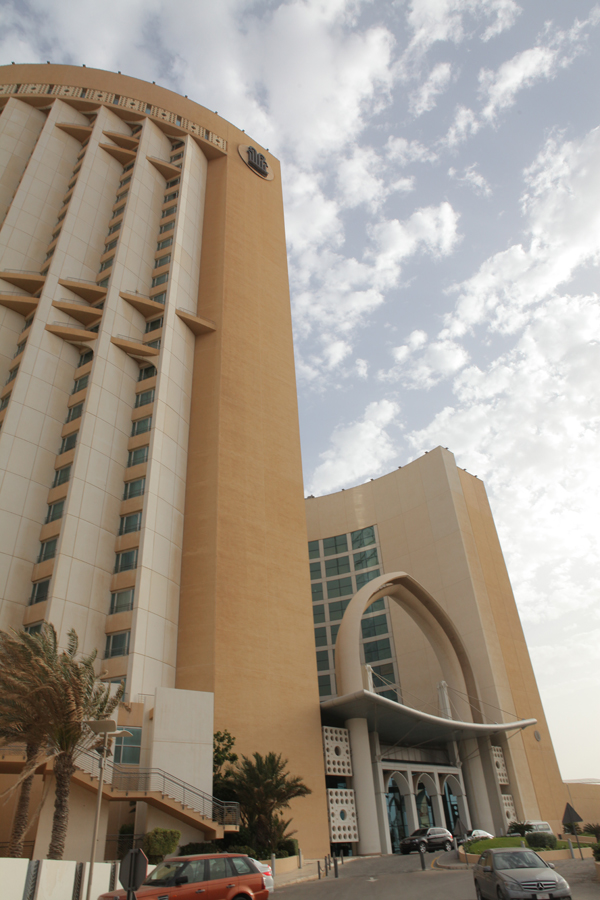
In an interview with Marcopolis, Eng. GI. Guider, Chairman of the Privatization and Investment Board, noted that Libya is now operating as an actual “country” post-revolution, with coherent government and a quickly evolving market economy versus Libya being the private “company” of an eccentric dictator.
According to the International Monetary Fund recently released Article IV economic consultation, the loss of hydrocarbon revenues during the rebellion along with UN sanction caused considerable downward pressure on the economy. All economic activity collapsed during the conflict with real GDP declining by 62.1 percent and average consumer prices increasing by 15.9 percent. The fall in hydrocarbon exports in 2011 led to a budget deficit of 15.4 percent of GDP and a sharply reduced current account surplus.
With the establishment of National Transition Council government, the restoration of hydrocarbon production underpinned growth of 104.5 percent in 2012 while inflation declined to 6.1 percent. The Libyan budget had a surplus of 20.8 percent of GDP and the current account surplus widened to 35.9 percent of GDP.
The IMF said in its report that the financial situation began to normalize in early 2012 after the removal of UN sanctions on the foreign assets of the central bank. Adding, that in 2012, broad money grew by 11.5 percent with a “modest shift from currency into deposits and credit to the private sector increased by 30.3 percent.”
“Although the conflict will have caused asset quality to deteriorate, the systemic impact on the banking system should be modest in light of the liquidity buffer provided by banks’ substantial reserves, along with limited claims on the private sector and the implicit government guarantee of loans to state-owned enterprises,” the IMF report said.
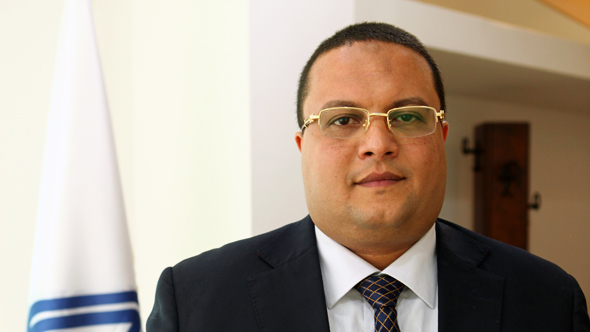
The political situation is normalizing, but for now the fledgling elected government under the General National Council still lacks control over parts of the country. “While the nascent government brings together various interest groups, it continues to face a fragmented political landscape and tribal power struggles, which complicate the writing of a new constitution and efforts to reestablish security and the rule of law,” the IMF said.
IMF directors lauded the continuing rebound in economic activity and growth outlook, however adding that the ongoing political and security uncertainties along with dependence on an oil economy that is vulnerable to pricing fluctuations shall constitute challenges during the country’s period of political and economic transition. “Including the need to support the reconstruction effort while maintaining macroeconomic stability,” the IMF said.
Also the IMF welcomed the government’s “intention to articulate and implement a strategic vision for economic development, including setting up a governance framework based on transparency and accountability.”
“Credible and efficient institutions and a favorable business environment will be crucial to create employment opportunities in the private sector and reduce hydrocarbon dependency,” the report noted.
Banking Sector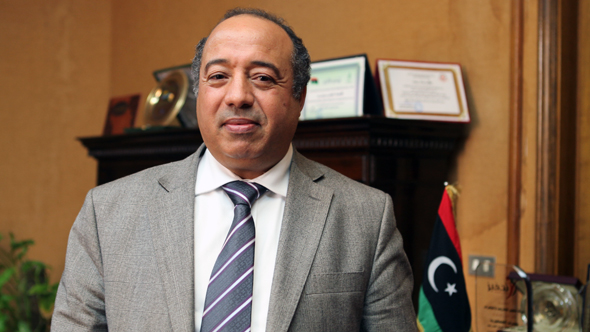
To establish Islamic banking practices, on Jan. 6, 2013, the General National Council passed a law banning interest in financial transactions. The law was gazetted on March 21, 2013 and going forward Libyan banks will no longer be allowed to pay interest or to receive interest from individuals. Also, private sector and state entities will be prohibited from receiving and paying interest from the beginning of 2015.
Noting this, the IMF said that new law “banning interest in financial transactions in the absence of Sharia-compliant institutions and framework would preclude conventional bank lending,” and the IMF directors “recommended that the (Libyan) authorities consider delaying the implementation of the new law until the financial sector is able to comply with it.”
Ahmed Rajab, general manager Joumhouria Bank, Libya’s largest bank by assets forecast 15 percent growth for the bank, year on year.
“Profitability is growing but we are also trying to increase employee salaries. When I took over this bank, I tried to find out how the average salary compared to the other banking sectors here, especially the government banking sector. It should be at least equal or within 5 or 10 percent,” Rajab said.
“Before I became the general manager of the bank, I insisted on increasing the salary of the staff by 14 percent to be equal to the public banking sector, which includes the National Commercial Bank, which already has affected our profit heavily with a staff of 6,500-7,000.” Rajab said. “This (salary increase) is a big amount – more than 70 million Libyan dinars. At the same time, the central bank this year established a fund for the guarantee on the deposits of the banks to which we had to contribute.”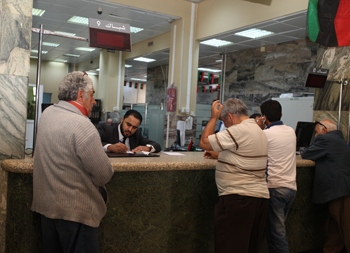
“In 2012 they (Central Bank) took 22 million Libyan dinars from Jumhouria Bank, so in addition to 70 million Libyan dinars for the increased salary, it came to 90 to 100 million Libyan dinars just for unexpected expenses. It’s not a small amount for a bank to increase from one year to the next. Also for 2013 this fund required about 34 million Libyan dinars from the bank.”
Energy Sector
The energy market dominates the Libyan economy, accounting for more than 70 percent of GDP, more than 95 percent of exports, and approximately 90 percent of government revenues.
Dr. Nuri A. Berruien, chairman of the National Oil Corporation said in an interview with Marcopolis that oil and gas production is back on track after a stoppage during the fighting.
“For oil production, technically we’ve exceeded 1.6 million (bpd) but right now we are averaging 1.5 million (bpd) because of strikes. In the new era of democracy and freedom, there have been some strikes which are affecting our production levels,” Berruien said. “But technically we’ve already established the capability to produce more than 1.6 million (bpd). Hopefully by the end of the year, we’ll get close to about 1.7 million barrels per day.”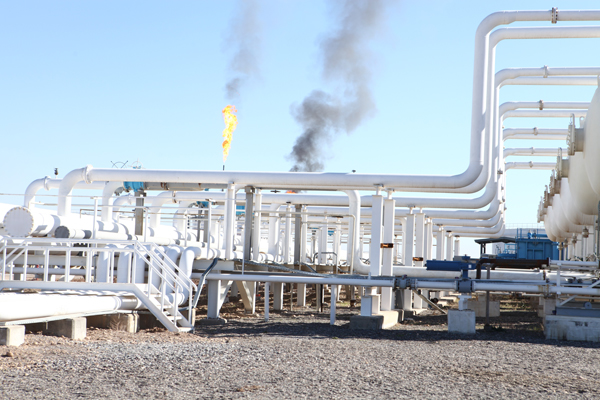
Going forward, the oil corporation chairman added, “In the medium term of three to four years, we could easily boost those figures to about two million barrels per day. In the new phase of exploration, we’re expecting an additional production that comes from the expected discoveries.”
Analysts note that a key factor for the oil sector is the marked increase in the number of oil exploration and production sharing agreements with oil companies such as Eni, Total and Suncor.
In February, Italy’s Eni reported profits of €19.75 billion ($26.44 billion) in 2012, up 14.6 percent from the prior year.
“Production benefited from the nearly complete recovery of production levels in Libya in spite of the complex transition phase the country is undergoing following the revolution,” the company said in a release.
The Outlook for the Economy
The Economist Intelligence Unit recently forecast in a country report on Libya an average of 9.6 percent growth between 2012 and 2017.
In its country report, the EIU also predicted that political uncertainty will remain high, but that if security is maintained and the government succeeds in articulating clear policies towards business the door will be opened to increased foreign direct investment.
Also of note is the IMF’s prediction of a robust 20.6 percent jump in GDP for 2013
Hafed Al-Ghwell, an advisor to the board of the World Bank Group, said in a recent Libyan Herald opinion column that more support was needed for programs to assist in youth employment and in boosting both the local and international private sector in Libya.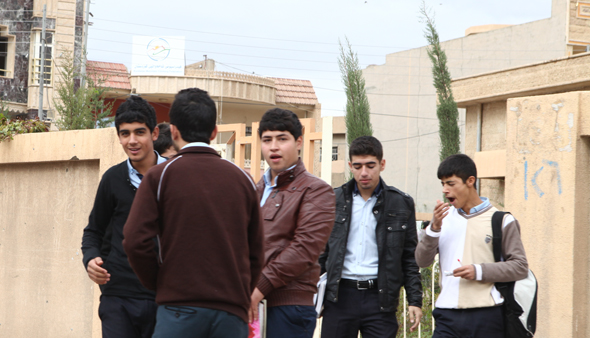
“Economic reintegration activities in Libya need to be tailored to skills and aspirations of the particular groups, while engaging private sector actors. At the moment, local private sector is very weak because of the legacy of the former regime restrictions.” Ghwell wrote in his column. “However, there is an emergent group of young, civically -minded entrepreneurs and business associations with which to engage.”
He added, “In this environment, it is important also to promote opportunities for self-employment and youth entrepreneurship. This could be linked to additional activities for incubation and business development services, investment support and access to credit. It will be critical to have partnerships with the local and international private sector early on to leverage their expertise and creating the enabling environment for small private sector development.”
Guider, who heads the Privatization and Investment Board, said as the country goes forward any economic progress requires building from zero.
“The major challenge is that a lot of investors think that Libya is a country like Tunisia and Egypt for example. Ok, we had a revolution but it is finished and we have to move on. The reality is that this country was not a country before the revolution; it was something like a company,“ Guider noted.
“A country has a long term vision, a master plan, it has local authorities etc. but we didn’t have that before, we have to build up from zero.“ the investment board chief said.
“A country has a long term vision, a master plan, it has local authorities etc. but we didn’t have that before, we have to build up from zero.“ the investment board chief said.
Guider added, “I think this government and parliament is doing well after just 15 months to have a master plan and a new vision, and to have started with some roadmaps in oil, tourism, renewable energy etc. this is what we have to do and it is what we are doing.“
Speaking to Marcopolis, Libyan Stock Market general manager Ahmed M. Karoud said, “The new government wants to have privatization and to have a good private sector as we didn’t have one before. Only 5 percent of our economy was in the private sector before. Maybe for the oil sector there was a double digit growth. However the real economy was sleeping.“